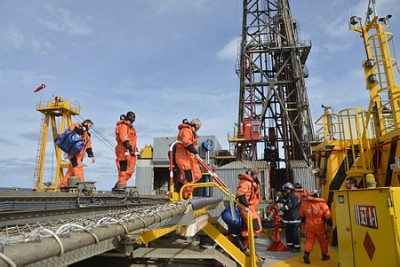The major cost- and job-cutting now going on within Norway’s oil and offshore industry “will be felt throughout the entire national economy,” claims one top local economist. While the west coast county of Rogaland is likely to be hit hardest, environmentalists and others are cheered by some aspects of the cuts.

The risk of accidents caused by maintenance cutbacks worries many, not least the regulators and environmentalists. The loss of thousands of jobs will also have an impact on Norway’s economy, which has famously roared forward during the past decade despite the financial and euro crises elsewhere.
“This will be felt in the whole economy,” Knut Anton Mork, chief economist at Handelsbanken, told newspaper Dagens Næringsliv (DN). “This is not just an oil sector or Rogaland issue.”
That’s because Norway’s oil and offshore industry has been the locomotive for the rest of the country’s economy, and Mork doesn’t think Norwegians understand how serious the slowdown in the oil industry really is.
Mork notes that nearly half of all variations in the mainland economy in Norway are tied to oil industry activity. Without oil to propel further growth, the future will be decidedly different from recent boom years. “Goldman Sachs has put us on their list of stagnating economies,” Mork told DN. “There’s a danger they’re right.”
DNB, Norway’s largest bank, has estimated that 4,300 jobs in the oil sector have disappeared already, while others put the figure closer to 5,000. More cuts loom, as offshore exploration slows down and more drilling rigs are laid up. Huge investment in infrastructure is at stake, bad news for Norwegian ship and rig yards and the country’s huge oil services sector, in addition for the oil companies themselves.
Upside to the downside, and environmental joy
Others note that it may be healthy for Norway’s strong economy to lose some steam, and that “stagnation” may be a relative term given the huge growth of recent years. An economic downturn would likely press down real estate prices that have become so high that affordability is a growing issue. Inflation otherwise has remained in check, and more Norwegians are saving money than ever before, according to some economic outlooks. Others are paying down debt, even though debt levels remain high.
Environmentalists, long arguing for a shift from investment in oil to investment in renewable energy, welcome a slowdown in offshore exploration at a time when calls have issued to let more of Norway’s oil remain under the seabed. And many were all but jubilant when Statoil confirmed last week that it was postponing the launch of another oil sands project in Canada.
Statoil said it wouldn’t move forward with development of the Corner field of the Kai Kos Dehseh project in Alberta for at least another three years, because the costs for labour and materials have increased. The decision will have no effect on Statoil’s other controversial oil sands project, Leismer, which is in production.
Greenpeace and WWF were nonetheless pleased, although they want Statoil to shut down Leismer, too, because of its effects on the environment and the climate. Truls Gulowsen of Greenpeace Norge called the Corner postponement “a great victory for all of us who have fought against this mistake of a project for many years,” he told news bureau NTB. WWF agreed that the postponement “is a big step on the way to get Statoil completely out of oil sands.”
Political parties including the Greens (MDG) and the Socialist Left (SV) have also reductions in oil activity at home in exchange for increased investment in alternative energy. Now the market itself may be ushering in some of the changes they’ve sought.
newsinenglish.no/Nina Berglund

